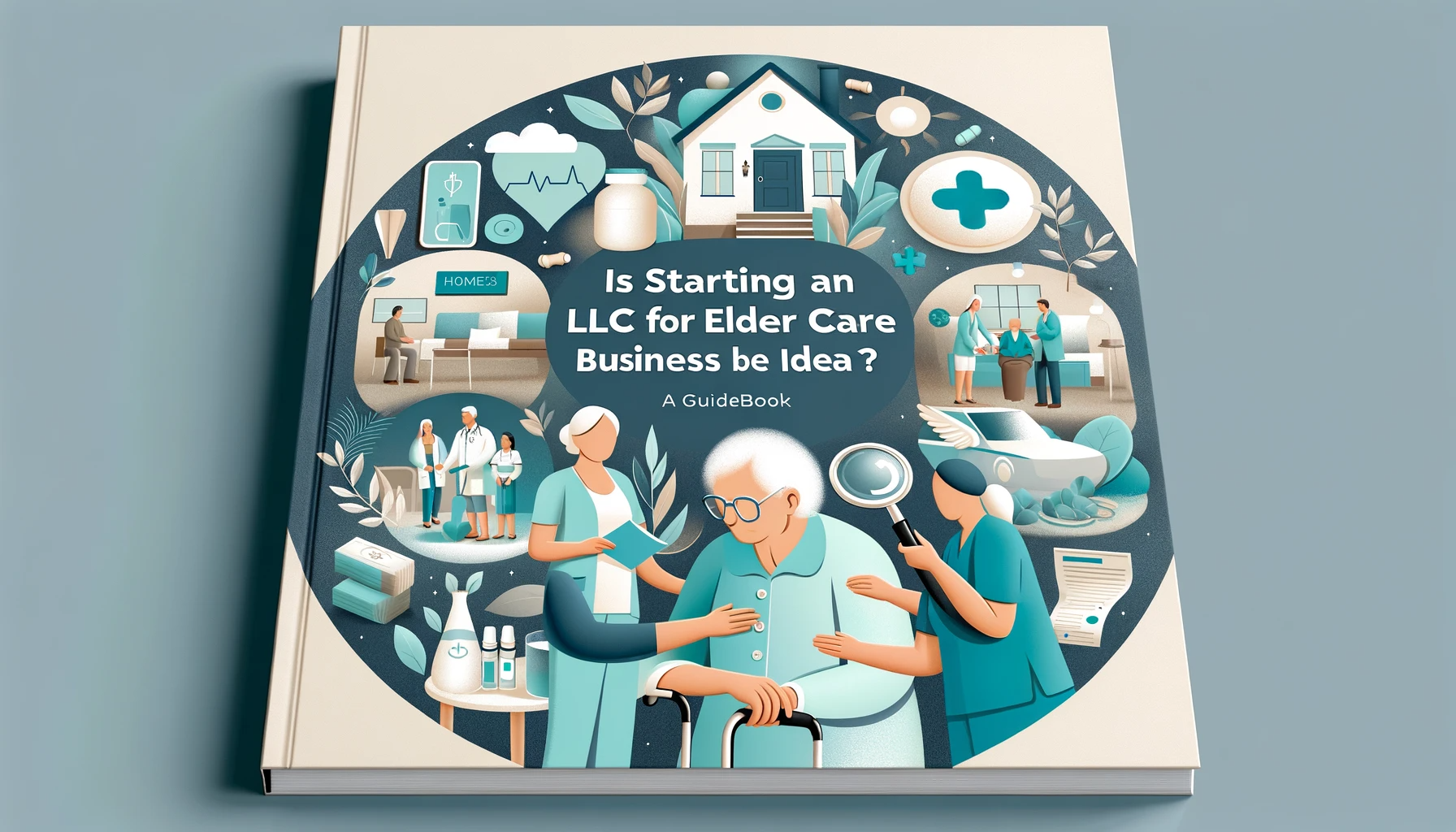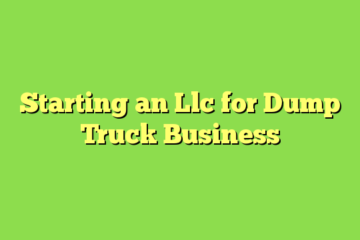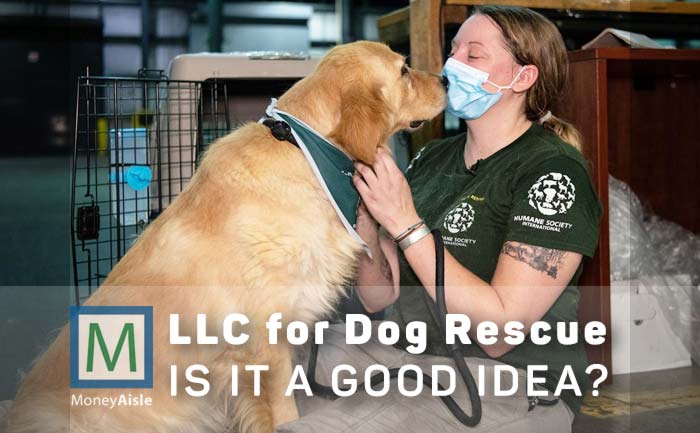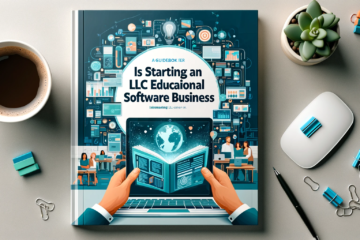Are you considering starting an LLC for elder care? This guide will provide you with the essential steps to get started.
You’ll learn how to choose the right business structure, register your LLC, obtain necessary licenses and certifications, develop a solid business plan, and effectively market and grow your elder care business.
With these expert tips, you’ll be equipped to navigate the process with confidence and build a successful venture in the thriving elder care industry.
Consider the needs and goals of your business. Choose the right business structure (sole proprietorship, partnership, or corporation). Understand and comply with licensing requirements in your state. Develop a comprehensive business plan to define goals, target market, and budget
Choosing the Right Business Structure
To choose the right business structure for your LLC for elder care, consider the specific needs and goals of your business. Choosing the right legal entity is crucial as it will determine your liability, tax obligations, and management structure. The most common business structures for LLCs include sole proprietorship, partnership, and corporation. Each has its own advantages and disadvantages, so it’s important to weigh them against your specific circumstances.
Tax implications and considerations are also important factors when choosing a business structure. For example, a sole proprietorship allows for the simplest tax filing, as your personal and business income are treated as one. However, this also means that you’re personally liable for any debts or legal issues that arise. On the other hand, a corporation may offer more protection from personal liability, but it also comes with more complex tax obligations.
It is recommended to consult with a tax professional or legal advisor to determine the best business structure for your LLC. They can help you understand the tax implications and legal requirements associated with each option, ensuring that you make an informed decision that aligns with your business goals. Taking the time to choose the right business structure will set a strong foundation for your LLC for elder care and help you navigate the complexities of running a successful business in this industry.
Registering Your LLC
When registering your LLC for elder care, you’ll need to complete the necessary paperwork and submit it to the appropriate government agency. Understanding the legal requirements and choosing a business name are two important aspects of this process.
Firstly, you need to choose a business name that accurately reflects your elder care services. It should be unique and not infringe on any existing trademarks. Conduct a thorough search to ensure that the name you choose isn’t already in use by another business in your industry. Once you have selected a name, you can then proceed with the registration process.
Next, you must familiarize yourself with the legal requirements for registering an LLC in your state. These requirements may vary, so it’s crucial to research and understand the specific regulations in your jurisdiction. Generally, you’ll need to prepare and file articles of organization, which outline the structure and purpose of your LLC. Additionally, you may need to obtain necessary licenses and permits depending on the nature of your elder care services.
Completing the necessary paperwork and submitting it to the appropriate government agency is a crucial step in registering your LLC for elder care. By understanding the legal requirements and choosing a business name that aligns with your services, you can ensure a smooth and successful registration process.
Obtaining Licenses and Certifications
As you navigate the process of registering your LLC for elder care, obtaining the necessary licenses and certifications becomes an essential step. Before you can provide elder care services, you must comply with licensing requirements set by your state. These requirements vary from state to state, so it’s important to research and understand the specific regulations in your area. Contact your state’s licensing board or department of health and human services to obtain the necessary information and application forms.
In addition to licensing requirements, it’s also important to consider training programs that can enhance your skills and knowledge in elder care. Completing a training program not only improves the quality of care you can provide, but it also increases your credibility and marketability as a professional in the field. Look for training programs that cover topics such as gerontology, dementia care, medication management, and end-of-life care. These programs can help you develop the necessary skills to effectively care for elderly individuals.
When obtaining licenses and certifications, it’s crucial to stay updated with any changes or renewals required by your state. Failure to comply with licensing requirements may result in fines or even the revocation of your license. Stay organized and keep track of expiration dates to ensure that your licenses and certifications are always current.
Developing a Business Plan
Now, it’s time to develop a business plan that outlines your goals and strategies for your LLC in the elder care industry. A well-crafted business plan is essential for the success of any venture, as it provides a roadmap for your future activities and helps you stay focused on your objectives.
To begin, start by clearly defining your goals and objectives. What do you hope to achieve with your elder care LLC? Are you aiming to provide in-home care services, or do you plan to open a residential facility? Understanding your goals will help you shape your business plan accordingly.
Next, it’s important to identify your target market. Who are your potential clients? Are you targeting seniors who prefer to age in place, or are you focusing on those who require specialized care in a facility? Conduct market research to gather information about your target market’s needs, preferences, and demographics. This will enable you to tailor your services to meet their specific requirements.
Another crucial aspect of your business plan is creating a budget. Determine your startup costs, including licensing fees, equipment, and staff salaries. Additionally, estimate your ongoing expenses such as rent, utilities, and marketing. By creating a comprehensive budget, you can ensure that you have adequate funds to cover all the necessary expenses.
Marketing and Growing Your Elder Care LLC
To effectively market and grow your Elder Care LLC, focus on identifying and targeting your ideal client base. One way to do this is by utilizing digital marketing strategies. Create a website that showcases your services, testimonials from satisfied clients, and contact information. Optimize your website for search engines so that potential clients can easily find you when they search for elder care services in your area. Additionally, consider implementing a social media strategy to reach a wider audience. Create engaging content that provides valuable information and tips for elder care, and interact with your followers to build a sense of community.
Networking opportunities can also be invaluable for growing your Elder Care LLC. Attend local events and conferences related to elder care or healthcare in general. This will allow you to connect with other professionals in the industry, learn from their experiences, and potentially form partnerships or referral networks. Joining professional organizations, such as the National Association of Professional Geriatric Care Managers, can also provide networking opportunities and access to resources and educational materials.
Frequently Asked Questions
How Can I Find Elder Care Professionals to Hire for My Llc?
To find elder care professionals for your LLC, consider recruitment strategies such as job posting websites, networking events, and referrals from local agencies. Conduct interviews, check references, and ensure candidates have the necessary qualifications and experience in elder care.
What Are the Common Challenges Faced by LLCs in the Elder Care Industry?
As an LLC in the elder care industry, you’ll face challenges with the elder care workforce and managing client expectations. It’s crucial to find reliable professionals and effectively communicate with clients to ensure their needs are met.
How Can I Ensure the Safety and Well-Being of the Elderly Clients in My Care?
To ensure the safety and well-being of your elderly clients, it is crucial to prioritize caregiver training. Properly trained caregivers can recognize and respond to potential risks, implement safety measures, and provide quality care.
Are There Any Specific Insurance Requirements for an Elder Care Llc?
When starting an LLC for elder care, it’s crucial to be aware of the specific insurance requirements. Ensure you have appropriate coverage to protect yourself, your clients, and your business from any potential liabilities.
What Are the Key Legal Considerations When Operating an Elder Care Llc?
When operating an elder care LLC, there are key legal considerations to keep in mind. Compliance requirements must be met to ensure your business operates within the law and protects both your clients and your company.
Conclusion
In conclusion, starting an LLC for elder care requires careful consideration of various aspects. These include choosing the right business structure, registering the LLC, obtaining necessary licenses and certifications, developing a comprehensive business plan, and implementing effective marketing strategies.
With a professional and detail-oriented approach, you can establish a successful elder care LLC. This will allow you to contribute to providing quality care and support to the elderly community.
This article is created with the aid of automated technology and then carefully reviewed and verified for accuracy by our professional editors.









